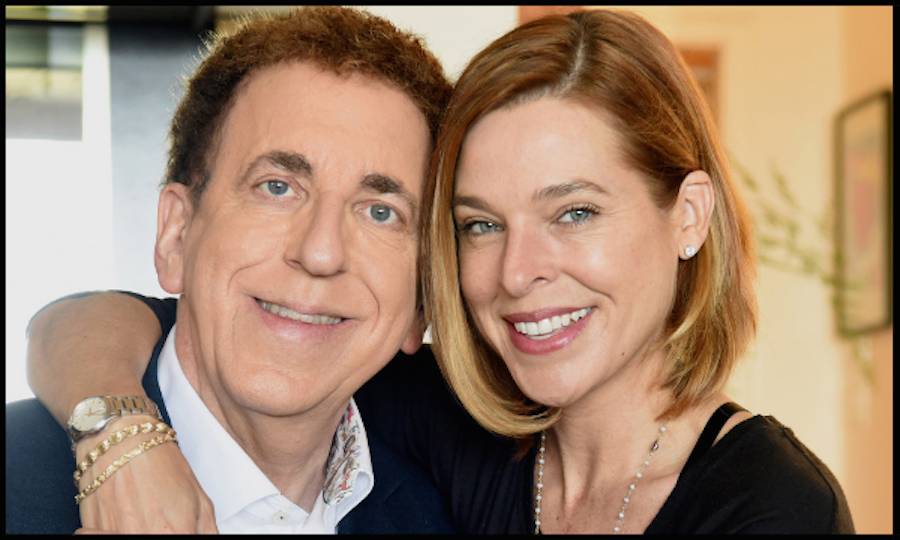Dr. Dean Ornish Explores How the Power of Love Can Heal Our Lives

This is an excerpt from Dr. Dean Ornish’s new book “UnDo It!,” co-written with his wife Anne Ornish. In this chapter, Dr. Ornish explores how well you live is meaningfully influenced by how well you love and how well you are loved.
Love and Intimacy Are Healing, Loneliness and Isolation Are Deadly
The need for authentic connection and community is primal, as fundamental to our health and well-being as the need for air, water, and food.
In 1998, I wrote a book, Love and Survival, that reviewed what were then hundreds of research studies (and now there are tens of thousands) showing that people who feel lonely, depressed, and isolated are three to ten times more likely to get sick and die prematurely from virtually all causes when compared to those who have strong feelings of love, connection, and community.
It’s gotten even worse since then. There is an epidemic of loneliness, isolation, and alienation in our culture. One‑third of people in industrialized countries are lonely, and 40 percent of adults in the United States report feeling that way. Suicide rates have increased by 25 percent in the past twenty years.
I reviewed these data on several occasions when meeting with Dr. Vivek Murthy during his term as the U.S. surgeon general. I admire him for making alleviating loneliness and social isolation one of the primary goals of his tenure. In another sign of the times, Prime Minister Theresa May recently appointed the first “minister of loneliness” in the United Kingdom.
Here again, loneliness exerts its negative influences via the same biological mechanisms we’ve been describing throughout this book. Every organ system and biological mechanism is affected. No other factor has such a powerful impact on our health, well-being, and survival. This provides another dimension of scientific evidence to understand the common underlying basis of so many chronic diseases.
For example, loneliness causes chronic emotional stress and overactivation of the sympathetic nervous system. Also, inflammation is persistently increased in people who are lonely or depressed, mediated via changes in C‑reactive protein, interleukins, and other mechanisms described earlier.
Researchers have documented that loneliness also turns on (upregulates) gene expression in over a thousand genes associated with chronic illnesses. These include, once again, turning on genes that promote chronic inflammation, immune activation, and cell proliferation and turning off anti-inflammatory genes.
On the other hand, love and intimacy exert their healing influences via these same mechanisms, but in positive ways. For example, social support buffers the stress response by changing gene expression in the brain, especially in the amygdala, the part of the brain that regulates stress (as described in Chapter 2).
Intimacy—anything that brings us closer together and away from isolation and loneliness—is healing. We sometimes refer to this as “horizontal intimacy.” It can be the romantic love of a lover or the platonic intimacy of a friend, a child, a parent, a sibling, a teacher—even a pet.
Especially a pet, which can provide the healing experience of unconditional love. When I come home from work, my dog runs up to me, wags his tail, licks my face—he just loves me for me, no matter what kind of day I’ve had or what I did or didn’t accomplish in the world. Studies have shown that looking a dog in the eyes can boost levels of oxytocin (a hormone involved in social bonding) in both the person and the dog, similar to what is seen when a mother looks into her baby’s eyes.
Intimacy can also be transcendent, in which we realize that we are not separate from each other and from ourselves. We experience our Self in different forms, manifesting as everyone and everything. We sometimes refer to this as “vertical intimacy.”
Although it is often done alone, meditation and other techniques help quiet down the mind and body, paradoxically enabling us to directly experience a greater sense of interconnectedness with each other and with ourselves. For example, a randomized controlled trial showed that just eight weeks of meditation decreases loneliness and, with it, markers of inflammation.
Compassion naturally flows when the divisions that separate us from each other begin to fade. It helps to free us from anger and chronic stress, which are often manifestations of the misperception that we are separate and only separate.
The connection with each other and with our soul and spirit is already there. Behind the dramas of our lives is always the light of the projector.
At times when we feel most vulnerable, that which is invulnerable within us becomes uncovered and easier to recognize. When our hearts begin to open, we are able to feel it, like opening a window shade and letting in the sunshine that’s been there along, waiting patiently to be allowed inside.
From UNDO IT! by Dean Ornish, M.D., and Anne Ornish, published by Ballantine Books, an imprint of Random House, a division of Penguin Random House, LLC. Copyright © 2019 by Dean Ornish, M.D., LLC
This book excerpt was featured in the Jan. 20th edition of The Sunday Paper, Maria Shriver’s free weekly newsletter for people with passion and purpose. To get inspiring and informative content like this piece delivered straight to your inbox each Sunday morning, click here to subscribe.
READ MORE STORIES THAT MOVE HUMANITY FORWARD
READ MORE STORIES THAT MOVE HUMANITY FORWARD
SIGN UP FOR MARIA’S SUNDAY PAPER

